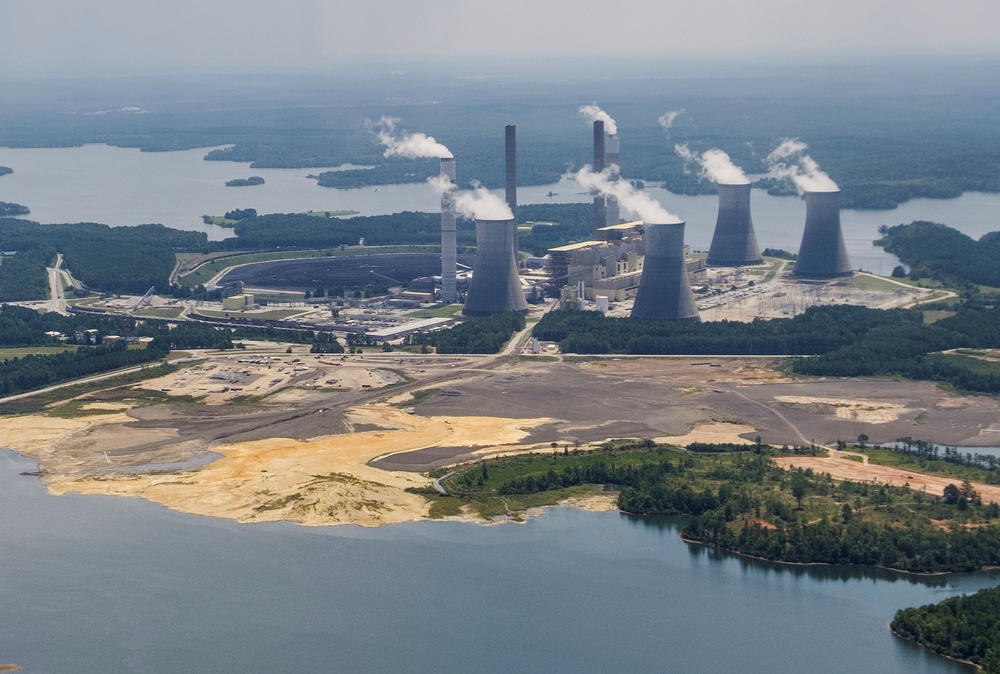
Caption
Georgia Power's Plant Scherer with the coal ash pond where residuals from burning coal at the plant are stored. The pond goes to depths of 80 feet in some places and comes into contact with groundwater.
Credit: Grant Blankenship/GPB


